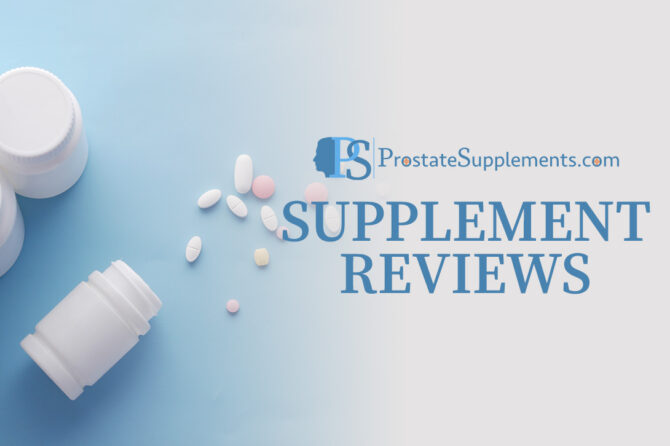
Oregano (Origanum vulgare) and Prostate Health
- Oregano’s major compounds (carvacrol, thymol) show anti-inflammatory, antioxidant, and antimicrobial actions that could be relevant to prostate health—but human clinical data specific to prostate outcomes (BPH, LUTS, prostate cancer) are not available. Evidence today is mostly in vitro and animal studies.
- Lab studies suggest carvacrol can slow growth and invasiveness of prostate cancer cell lines via pathways like TRPM7/AKT/ERK and IL-6/STAT3; these are hypothesis-generating only.
- Urinary relevance: oregano/carvacrol inhibit uropathogenic E. coli in vitro and may potentiate certain antibiotics, but clinical UTI trials are lacking.
- For BPH/LUTS, no clinical trials with O. vulgare were found; one rat study using a related species (Origanum majorana, marjoram) showed reduced prostate hyperplasia.
- Safety: culinary use is GRAS (generally recognized as safe); hepatotoxicity has not been reported. Carvacrol has mild antiplatelet effects in vitro; exercise caution with anticoagulant/antiplatelet drugs. Quality varies by chemotype and carvacrol % in essential oil.
1) Botanical and Phytochemical Profile
Oregano (Origanum vulgare, family Lamiaceae) is a Mediterranean herb used widely in food and traditional medicine. Its essential oil is rich in phenolic monoterpenes—primarily carvacrol and thymol—along with p-cymene and γ-terpinene. Chemotypes vary by geography and cultivation; carvacrol-dominant oils are common and often cited for bioactivity. In some samples, carvacrol can exceed 70% of the oil.
Mechanistic relevance to urogenital health stems from:
- Anti-inflammatory signaling (reduced IL-6, TNF-α; NF-κB/COX-2 modulation).
- Antioxidant effects (free-radical scavenging).
- Antimicrobial activity (notably against Gram-negatives, including E. coli).
2) Proposed Mechanisms Relevant to Prostate Biology
- Inflammation & oxidative stress are implicated in BPH/LUTS progression and tumor microenvironment. Carvacrol-rich oregano preparations down-regulate pro-inflammatory mediators in cellular systems and demonstrate robust antioxidant capacity—mechanisms that are biologically plausible for prostate benefit, though not yet validated clinically.
- Cancer-linked pathways: In prostate cancer cell models (PC-3, DU145, LNCaP), carvacrol inhibits TRPM7 currents, reduces p-AKT/p-ERK, lowers MMP-2, and attenuates IL-6/STAT3 signaling—collectively limiting proliferation, migration, and invasion.
- Antimicrobial action in the urinary tract context: Carvacrol/oregano oil suppress uropathogenic E. coli(including resistant strains) and may synergize with quinolones in vitro, supporting a theoretical role in UTI risk reduction—but clinical confirmation is absent.
3) Evidence Map: What We Know (and Don’t)
A. Benign Prostatic Hyperplasia (BPH) & Lower Urinary Tract Symptoms (LUTS)
- Human trials with O. vulgare for BPH/LUTS: none found.
- Animal data (related species): Origanum majorana extract reduced prostate enlargement and modulated oxidative/apoptotic markers in a testosterone-induced rat BPH model. While encouraging, this uses marjoram (a congener), not culinary O. vulgare.
Takeaway: There’s no clinical evidence that oregano treats BPH or LUTS; standard evidence-based options still apply.
B. Prostate Cancer
- Cell studies: Carvacrol suppresses growth and invasiveness in PC-3/DU145 lines, tied to TRPM7 and downstream AKT/ERK and IL-6/STAT3 signaling; apoptosis induction has been documented. No clinical trials yet test oregano or carvacrol for prostate cancer prevention or therapy.
Takeaway: Intriguing lab findings, but insufficient for clinical recommendations.
C. Urinary Tract Infections (UTIs) and Microbial Considerations
- In vitro: Oregano oil and carvacrol inhibit uropathogenic E. coli and can disrupt biofilms; combination with certain antibiotics (e.g., quinolones) showed synergistic effects in lab models. Clinical trials in UTI populations are lacking.
Takeaway: Potential adjunctive antimicrobial properties; real-world efficacy for UTI prevention/treatment remains untested.
D. Diet Pattern Context
- Mediterranean diet patterns—where oregano is a common herb—are associated with lower prostate cancer risk and mortality in observational research. This supports diet pattern benefits, not a specific oregano effect.
4) Ingestion Methods & Practical Use
Culinary use (safest, GRAS):
- Add dried oregano to meals liberally as part of a Mediterranean-style diet.
Herbal infusion (“oregano tea”):
- Typical informal preparations use ~1–2 teaspoons dried oregano per cup, steeped 3–10 minutes; frequency varies (1–3 cups/day).
Standardized oil capsules (dietary supplements):
- No established therapeutic dose. Limited clinical usage outside urology has employed ~200–600 mg/day of O. vulgare oil for short durations.
Essential oil drops (neat oil):
- Essential oil is potent; usually diluted if used internally and only short-term, due to potential mucosal irritation and theoretical dysbiosis.
Topicals:
- Used in some dermatology contexts (diluted), not relevant to prostate outcomes.
5) Safety, Interactions, and Quality Considerations
- General safety: Oregano as food is safe; no hepatotoxicity from oregano extracts has been reported. Allergic reactions can occur.
- Bleeding risk: Carvacrol exhibits mild antiplatelet activity in vitro. Patients on anticoagulant or antiplatelet therapy should avoid concentrated oregano oil or consult with a clinician. Suspend use before surgery.
- Drug interactions & variability: Oregano chemistry varies by chemotype and source. Some reports suggest contamination risks, so reputable sourcing is essential.
- Pregnancy/lactation: Insufficient data for medicinal doses; stick to culinary amounts.
6) Who Might Consider Oregano as Part of Diet
- Individuals seeking a Mediterranean-style anti-inflammatory diet pattern, incorporating herbs like oregano for flavor and polyphenols.
Who should be cautious or avoid medicinal doses:
- Those on anticoagulants/antiplatelets, with bleeding disorders, or with known Lamiaceae allergies.
7) Research Gaps
- BPH/LUTS: randomized, placebo-controlled trials of carvacrol-standardized O. vulgare with prostate endpoints.
- Prostate cancer: chemoprevention studies in at-risk populations or neoadjuvant models.
- UTI prevention: pragmatic trials testing oregano oil adjuncts vs. standard prophylaxis.
8) Practical Guidance (Non-Prescriptive)
- Prefer culinary oregano as part of an overall Mediterranean diet.
- If considering supplements, select brands that declare carvacrol %, perform third-party testing, and limit use to short courses unless supervised.
- Avoid co-use with blood thinners and stop before surgery; monitor for GI upset or allergic reactions.
9) Conclusion
Oregano offers a compelling biological rationale—anti-inflammatory, antioxidant, and antimicrobial properties—that intersects with mechanisms relevant to prostate health. Yet as of now, there’s no human evidence that oregano (or carvacrol) meaningfully improves BPH symptoms, prevents prostate cancer, or reduces UTIs. Enjoy it as a flavorful, healthful culinary herb within a Mediterranean-style diet; treat concentrated preparations with appropriate caution and consult a clinician if you have prostate disease or take anticoagulants.
Leave a reply

Leave a reply